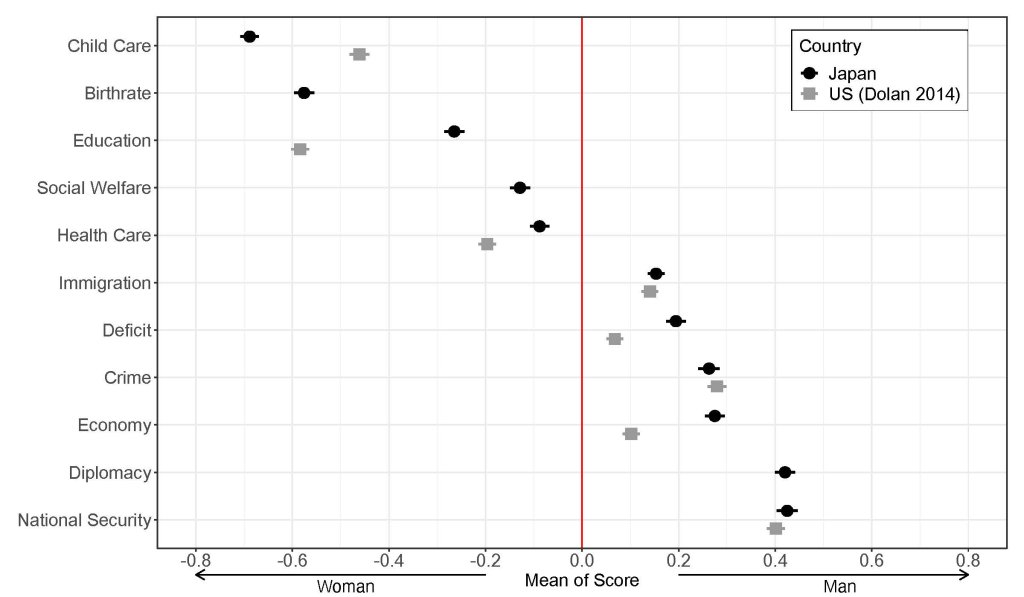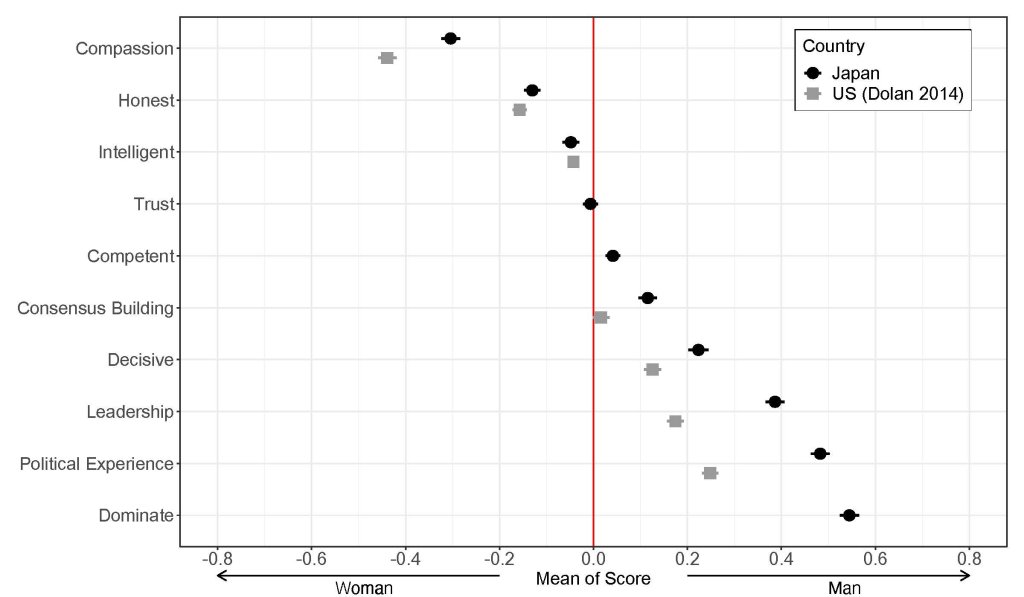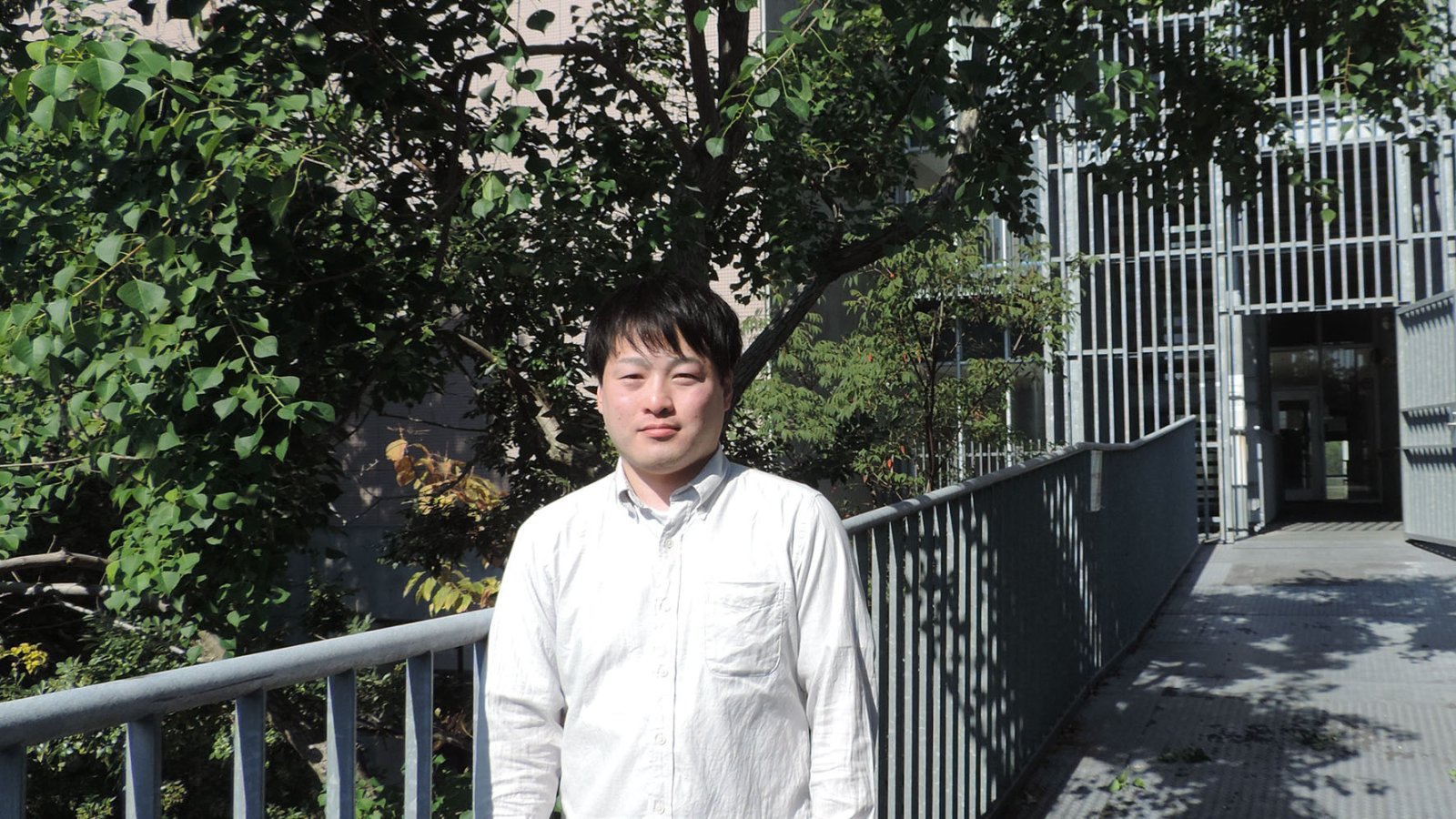Field of Research
Political Behavior
Research Topic
Gender and Politics, Political Behavior, and Political Psychology
Overview of Research
The proportion of female politicians in Japan currently remains extremely low, showing that the gender gap has yet to be rectified. Why then are there so few female politicians? A possible reason for this kind of gender gap is that Japanese voters have a bias against female politicians due to gender stereotypes.
However, we have yet to elucidate to what extent and in what forms gender stereotypes exist as well as how they influence the political behavior of voters. My research seeks to elucidate these issues by investigating the connections between Japanese voters’ political behavior and gender stereotypes.
Endo and Ono (2023) used an online survey to investigate the gender stereotypes of Japanese voters in detail. In this study, we compare gender stereotype tendencies between Japanese and American voters based on a question format used in a survey previously conducted in the United States.
As shown by the figure, like American voters, Japanese voters have gender stereotypes about politicians. This means that they perceive politicians to have specific strengths in terms of policy areas and characteristics according to their gender. The results suggest that gender stereotypes may serve as an indicator for Japanese voters’ evaluations of and votes for candidates.

Figure 2, Endo, Yuya, and Yoshikuni Ono. 2023. “Opposition to Women Political Leaders: Gender Bias and Stereotypes of Politicians Among Japanese Voters.” Journal of Women, Politics & Policy, February, 1–16.

Figure 3, Endo, Yuya, and Yoshikuni Ono. 2023. “Opposition to Women Political Leaders: Gender Bias and Stereotypes of Politicians Among Japanese Voters.” Journal of Women, Politics & Policy, February, 1–16.
My current research is primarily concerned with how and when gender stereotypes influence the political behavior of voters. For example, how do voters evaluate a female politician if she acts in a way that deviates from the generally expected stereotype? The influence of gender stereotypes on voters’ political behavior has not yet been clarified in many respects, so I seek to elucidate it to find clues and approaches to reducing the gender gap in politics, thereby contributing to the development of society as a whole.
Reference
Endo, Yuya, and Yoshikuni Ono. 2023. “Opposition to Women Political Leaders: Gender Bias and Stereotypes of Politicians Among Japanese Voters.” Journal of Women, Politics & Policy, 44(3), 371–386.
ENDO, Yuya
Assistant Professor
Degree:Ph.D.in Information Science
endo@osipp.osaka-u.ac.jp































